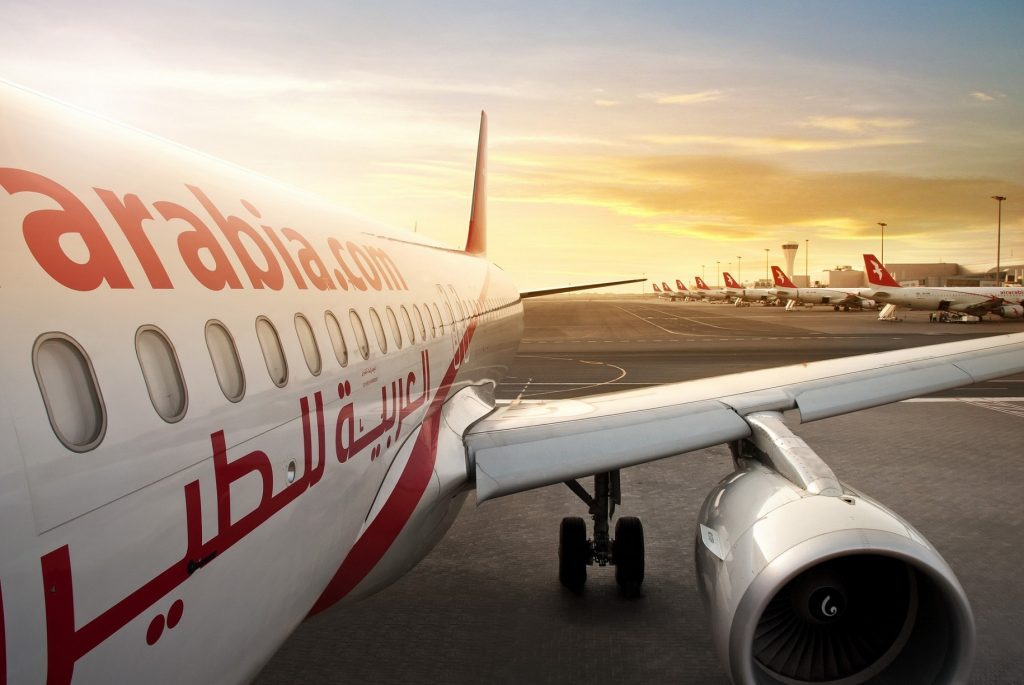Air Arabia, Middle East and North Africas first and largest low-cost carrier, announced full-year financial results for 2017, reporting positive growth.
Air Arabias net profit for the full year ending December 31, 2017 was AED662mn, a 30% increase compared to AED509mn registered in 2016. Turnover for the full year 2017 was in line with the preceding 12 months reaching AED3.74bn. More than 8.5mn passengers flew with Air Arabia in 2017 and the average seat load factor or passengers carried as a percentage of available seats in 2017 stood at an impressive 79%.
Following its solid full year 2017 performance, Air Arabias board of directors proposed a dividend distribution of 10% of share capital, which is equivalent to 10 fils per share. This proposal was made following a meeting of the board of directors of Air Arabia and is subject to ratification by Air Arabias shareholders at the companys upcoming annual general meeting.
Air Arabia added 21 new routes to its global network in 2017, from its five operating hubs in the UAE, Morocco, Egypt, and Jordan. The carrier took delivery of four new aircraft, and ended the year with a fleet of 50 Airbus A320 aircraft, operating to 140 routes across the Middle East, Africa, Asia, and Europe.
Sheikh Abdullah Bin Mohammad Al Thani, chairman of Air Arabia said: Air Arabia has enjoyed consistent and sustained growth in 2017, driven by its network expansion strategy and cost control measures helping us to once again deliver a strong set of results. While political and economic challenges continued to impact the performance of the aviation sector in 2017, we have focused more keenly than ever on ensuring the highest level of operational efficiency and appealing product offering.
He added: Air Arabias ability to continue to report sustained profitability and achieve solid growth margins across our network reflects the strength of our business model and the carriers management team.
In the fourth quarter of 2017, Air Arabia reported a net profit of AED26mn, an increase of 177% compared to a net loss of AED33mn registered in the last quarter of 2016. Turnover for the three months ending December 31, 2017 was AED858mn, an increase of 5.4% compared to AED814mn in the same period in 2016. Air Arabia flew over two million passengers in the final quarter of 2017 at an impressive seat factor of 78%.
Al Thani continued: The solid operating metrics and high seat load factor that Air Arabia achieved in the fourth quarter were positively impacted by improvement in yield margins and capacity rationalisation that the market have seen in the last quarter. We are extremely confident about the long-term fundamentals of the aviation sector in the region, which is driven by the underlying demand for air travel, major investments undertaken in aviation infrastructure in the region, as well as the regions hub position on the global map.
He concluded: We believe Air Arabia has the right business model, operating base, and infrastructure in place to continue delivering innovative value driven services to our customers. We will continue to explore opportunities and enter into new ventures that will best serve the airlines ambitious growth plans and at the same time provide highest returns to our shareholders.
In 2017, Air Arabia won “Outstanding Performance Robust Performance and Community Initiatives by the Aviation Achievement Awards 2017 at the Aviation Annual Gala Evening 2017. The carriers corporate social responsibility program Charity Cloud, which aims at providing sustainable education and healthcare initiatives in underprivileged communities across the world, embarked on 10 new projects spread across Kenya, Sri Lanka, Bangladesh, Sudan, Egypt, and Jordan.




